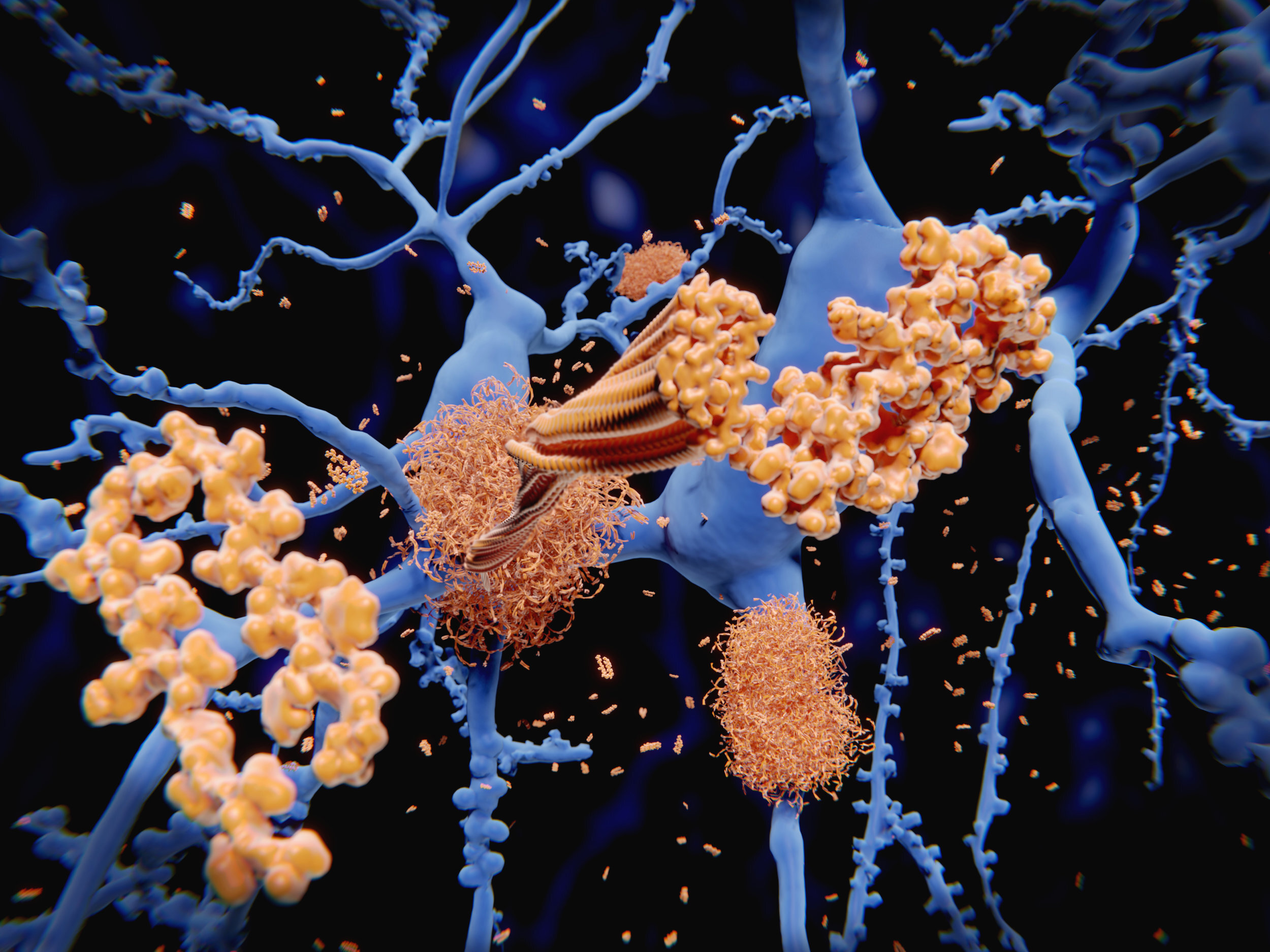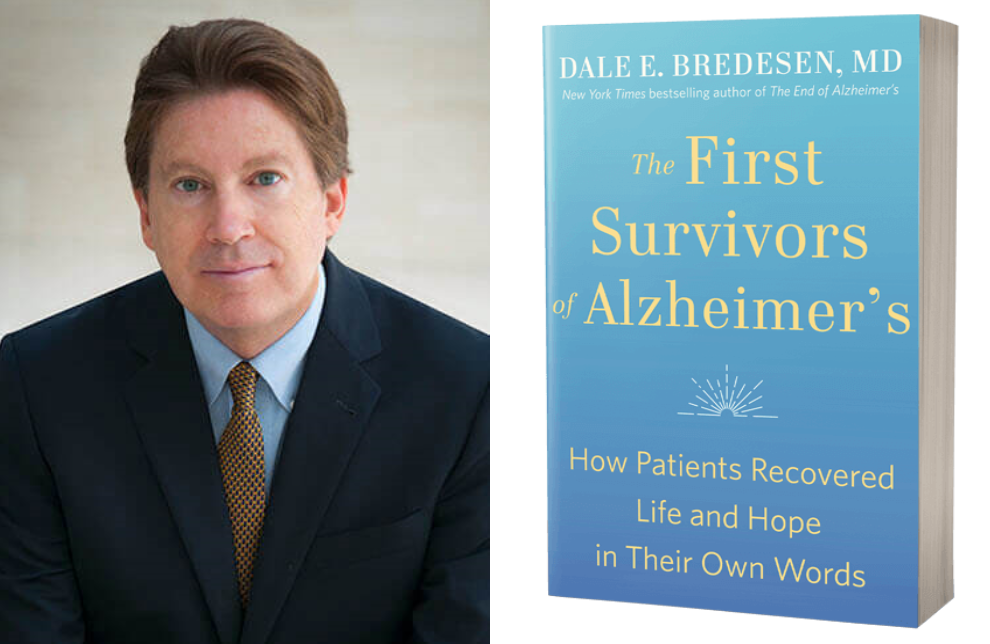Clinical trials of a new precision, or functional medicine approach to targeting, and reversing cognitive decline from Alzheimer’s Disease have produced “unprecedented” and “far-reaching” results.
Called the MEND (metabolic enhancement for neurodegeneration) Protocol, it’s based on the oft-ignored though universally understood preference, going all the way back to Hippocrates, for treating the cause, not the symptom, of a disease.
Developed by Dr. Dale Bredesen, an internationally-renowned expert in neurodegenerative disease, it works to fix and fortify the underlying biochemical profile that gives rise to Alzheimer’s, rather than simply targeting, as pharmaceutical companies have tried to do, the tau protein called beta-amyloid that brings about the hallmarks of the disease.
Over the last few years, several Alzheimer’s drugs have failed to prove efficacy, or what little efficacy they’ve demonstrated goes further to highlight the need for other treatment options, rather than the future any potential pharmaceuticals have for treating, much less curing, the third-leading cause of death in the United States.
Donanemab, for example, demonstrated no more than a mild rebuff of the developing symptoms for a period, but with only slightly greater results than placebo, but aducanumab, solanezumab, gantenerumab, crenezumab, and belenbecestat, have all failed to make expectations.
Neuroscientists have firmly established the only natural defense mechanism we have to protect our brain from the toxic beta-amyloid proteins that cause Alzheimer’s is sleep, but Bredesen has now shown in a series of human clinical trials that there is a panoply of conditions that must be met in order for a human to develop Alzheimer’s, and that if these conditions are corrected, even in the elderly, dementia can be reversed.

One hundred little stories
In the abstract of a study published in 2016, Dr. Bredesen explained that 10 patients with mild or subjective cognitive impairment, what Bredesen describes as essentially the first two of an eventual 4-stage disease, underwent 5-24 weeks of the MEND Protocol.
“The therapeutic approach used was programmatic and personalized,” writes Bredesen. “Patients who had had to discontinue work were able to return to work, and those struggling at work were able to improve their performance. The patients, their spouses, and their co-workers all reported clear improvements”.
Here the time for science jargon must end, as Bredesen stressed in a recent interview on Revolution Health Radio, this work must be told of by anecdote, because for patients struggling with Alzheimer’s, and for their whole family, it is a tragedy that can’t be adequately summarized in the language of a peer-reviewed paper.
He [one of the ten patients, aged 69] was advised that, given his status as an Alzheimer’s disease patient and his clear progression, as well as his poor performance on the 2013 test, he should begin to “get his affairs in order.” His business was in the process of being shut down due to his inability to continue work.
He began on the MEND therapeutic program, and after six months, his wife, co-workers, and he all noted improvement. He lost 10 pounds. He was able to recognize faces at work unlike before, was able to remember his daily schedule, and was able to function at work without difficulty. He was also noted to be quicker with his responses. His life-long ability to add columns of numbers rapidly in his head, which he had lost during his progressive cognitive decline, returned. His wife pointed out that, although he had clearly shown improvement, the more striking effect was that he had been accelerating in his decline over the prior year or two, and this had been completely halted.
Later, MEND case studies were compiled into a paper of 100 little stories of people recovering from the void of neurodegeneration; not of slowing, or stopping their cognitive decline, but of altogether reversing it. The case study is filled with small notations that belittle enormously their significance to the patient and their relations.
“Driver’s license returned; follows recipes again; nurse asked, “What happened?!” or “speaking, dressing, dancing, biking, emailing, kayaking all returned,” or “conversing again, dressing himself, calling grandchildren by name, working again”.

The Bredesen Protocol
From this method came the “Bredesen Protocol” which recently produced the first clinical trial in history that involved a pre-examination for all the underlying factors that contribute to Alzheimer’s, before setting out a personalized, precision medicine approach.
Released on a pre-print server for studies awaiting peer review, the study presented the hypothesis that what we call Alzheimer’s is a network dysfunction resulting from decades of assaults upon our physiology by the environment. Toxins like heavy metals, black mold, air particulates, metabolites, and biological detritus like the beta-amyloid targeted by dementia drugs, a lack of trophic support coming from a sedentary or easy lifestyle—all of these contribute to the conditions that give rise to neurodegeneration.
Logically it follows that correcting this dysfunction would be the first step to targeting Alzheimer’s, which is exactly what happened in all 25 of the patients in the study, when they were assisted in addressing all 36 underlying biological dimensions in the Protocol.
The Protocol is broken down into the PreCODE and ReCODE programs for those with underlying health conditions, and those who have already been diagnosed.
While this is merely a news report, and is not to be construed with medical advice, those interested in the Bredesen Protocol can absolutely learn more and even enroll a loved one in the program.
Since the advent of COVID-19, all of us suddenly needed to understand a little about epidemiology to comprehend what was happening. According to research from Bredesen, COVID-19 will have killed somewhere around 600,000 Americans, whereas 45 million of them are predicted to develop, and die as a direct consequence of, Alzheimer’s.
Those numbers are only in America, but the advent of longer lives and chronic disease, toxicity exposure, and poor diet, are by no means unique to the United States. The Bredesen Protocol, therefore, has the potential to save hundreds of millions of people from what most of us would agree is the worst way to go. WaL
If you think the stories you’ve just read were worth a few dollars, consider donating here to our modest $500-a-year administration costs.



